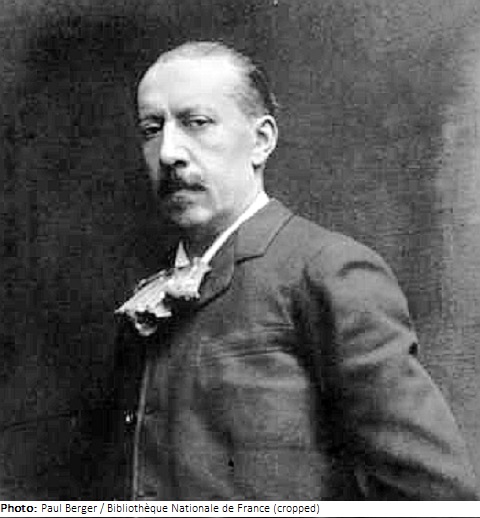
| Roles | Referee |
|---|---|
| Sex | Male |
| Full name | Charles-Marie Jean Albert•Widor |
| Used name | Charles-Marie•Widor |
| Born | 24 February 1845 in Lyon, Rhône (FRA) |
| Died | 12 March 1937 (aged 92 years 16 days) in Paris XVIe, Paris (FRA) |
| NOC |  France France |
Charles-Marie Widor came from an Alsatian family with Hungarian roots. Already his father François-Charles Widor (1811-1899) was an organist and organ builder. Thus, his son also became a well-known organist, teacher, and composer. Already in his childhood, Charles-Marie played the organ and was known for his improvisations.
Widor then studied in Bruxelles and in 1860 was appointed organist at St.-Francois in Lyon. He later destroyed several of the early compositions from this period. In 1870 he went to Paris, became an organist at the church of St.-Sulpice, and remained there until 1934. About 1880 he began writing music criticism for the daily L’Estafette under the pseudonym “Aulétès”. In 1890 he accepted the professorship of organ at the Paris Conservatoire and in 1896 that of composition. In 1910 Widor became a member of the Académie des Beaux-Arts, of which he became permanent secretary in 1913.
One of his well-known students was the Nobel Peace Prize winner, physician, and organist Albert Schweitzer, with whom he edited the first five of eight volumes of the organ works of Johann Sebastian Bach.
As a composer, Widor worked in many musical forms including ballet and opera but became best known for his organ music, for instance, the 10 “symphonies” (actually suites) for organ. He was also considered a great virtuoso, especially with his performances and variations of the works of Johann Sebastian Bach. After World War I, he was increasingly criticized for his conservative musical language in the late Romantic tradition of the 19th century.
In 1892, Widor was made a Knight of the Legion of Honor and rose through the ranks to Grand Officier in 1933. Three years before his death, at the age of 90, he played his Pièce mystique, composed in the same year, at his farewell concert in St.-Sulpice. He was eventually buried in this church.
In 1924, he acted as president of the jury in the musical section of the art competitions.
| Games | Sport (Discipline) / Event | NOC / Team | Phase | Unit | Role | As | |
|---|---|---|---|---|---|---|---|
| 1924 Summer Olympics | Art Competitions |  FRA FRA |
Charles-Marie Widor | ||||
| Music, Open (Olympic) | Final Standings | Judge |